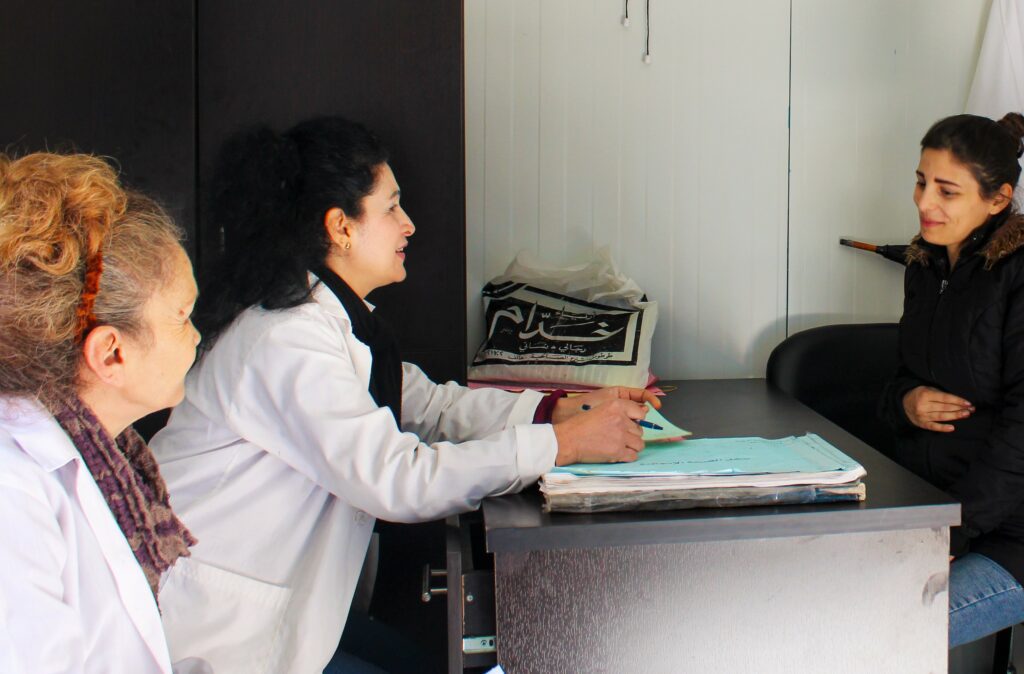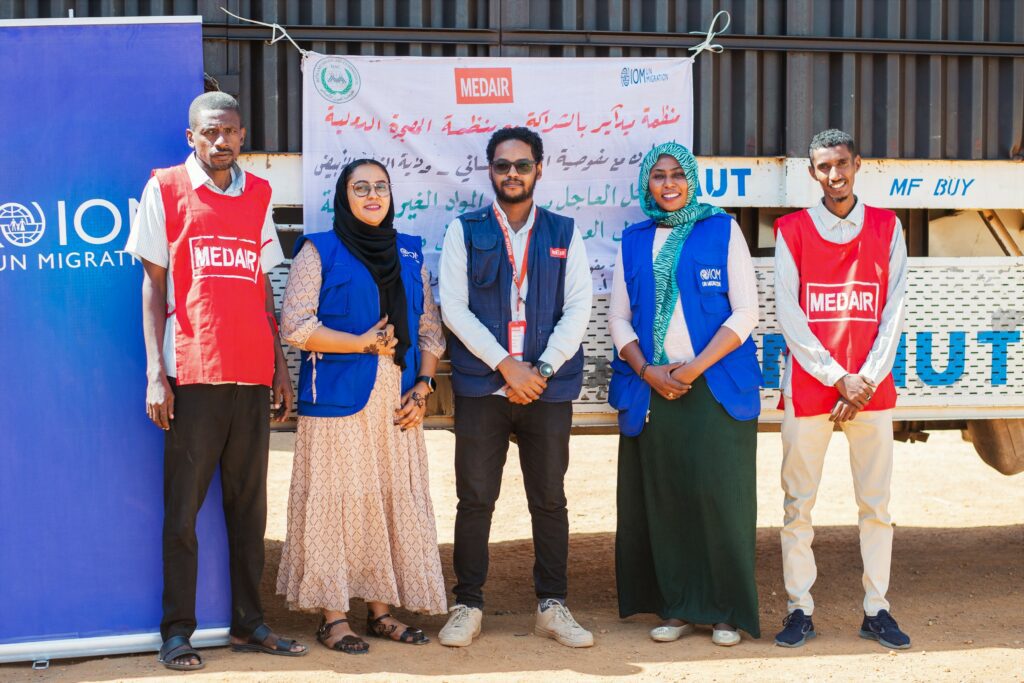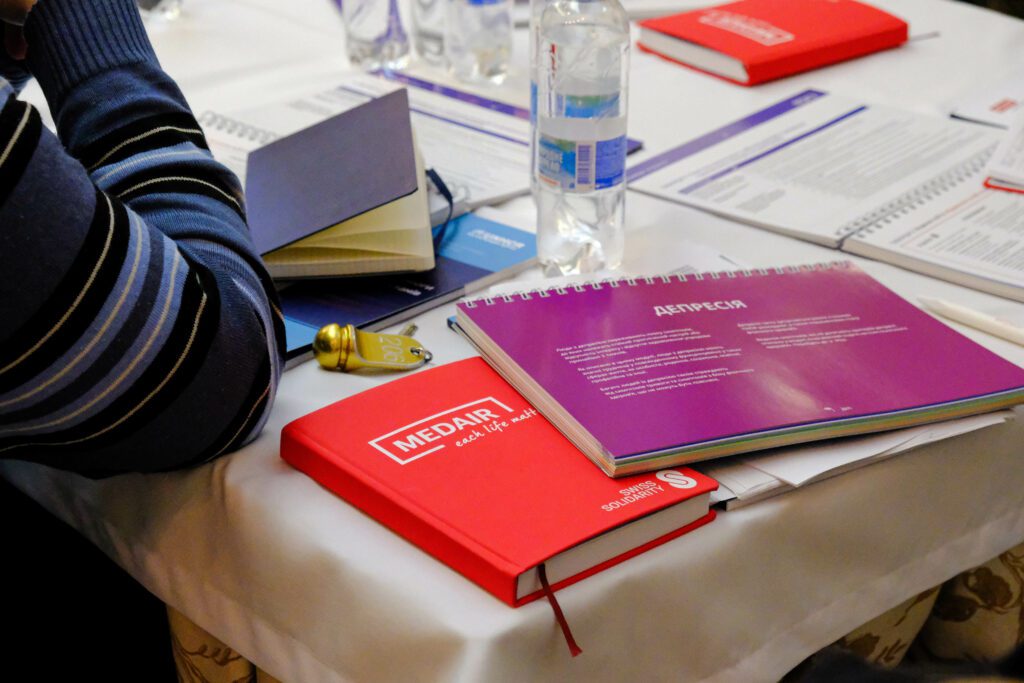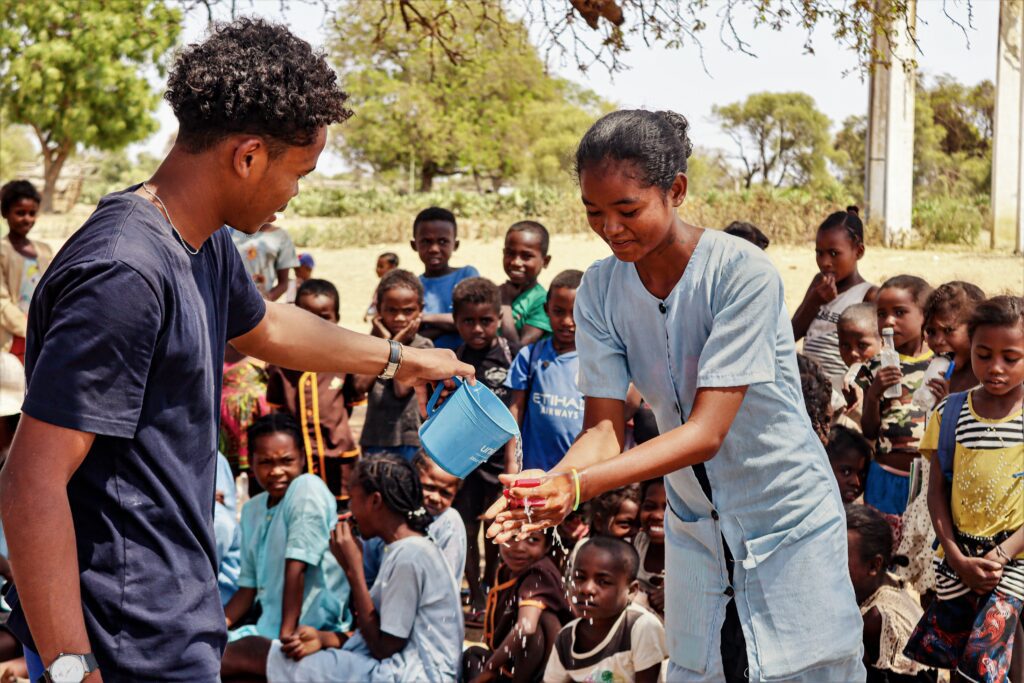Georgine is a single parent of three – her husband was killed during the conflict in Djugu Territory, Ituri Province. Despite living in displacement in Lopa village, around 40 kilometres north of the provincial capital, Bunia, she works as Assistant Head Nurse at the health centre. Georgine is a loving mother and compassionate neighbour, and her story stands out for its hope and humanity.
“I lost my husband while my family was running away from our burning house. Armed men killed the father of my children,” Georgine says.
“He died more than a year ago already, but I am still grieving and feeling anxious when I think of him and my children,” she explains, trying to hold back tears. “But I need to take care of myself and do something for our children.”
Georgine is able to provide for her children thanks to finding work at Lopa health centre. “Working here, helping fellow IDPs, gives me a sense of fulfillment. I am blessed to have been given the opportunity to help my neighbors, with whom I am sharing the same fate,” she says.
Georgine is one of the thousands of displaced people who were forced to flee their homes when armed men attacked their village, with guns and machetes, in Djugu Territory. I asked Georgine whether we could visit the informal camp that sits directly adjacent to the health center. She accepted, and we met displaced mothers and pregnant young women sitting on the ground outside their houses, and children playing under the scorching sun.
Georgine introduced me to 50-year-old grandmother Josephine and her three-week-old granddaughter and namesake, Josephine Bahati. Josephine welcomed us into their tiny house made of grass and sticks, the single room serves as a sitting and cooking room in the daytime and as the bedroom at night.
Josephine is seated on a rock cradling her granddaughter, who lays comfortably on her lap. “Josephine Bahati was born in the health center. I cared for her mother during the labor and assisted the doctor during childbirth,” Georgine says.
She continued, “Even if babies are born healthy, I encourage mothers to visit the health center for vaccinations and check-ups, considering that we are prone to diarrhea and other illnesses due to limited water supply in the camp.”
Georgine admits that living in a camp has been a struggle. “We may have difficulties living in the camp with no enough food, cramped house and big risk to spread diseases including the Ebola virus, but I prefer to stay here. I have no immediate plans to return to our village.
We may no longer have the comfort of a real house, but I am at peace knowing that my children are safe here. This is a new home for me and my children.” Georgine adds.
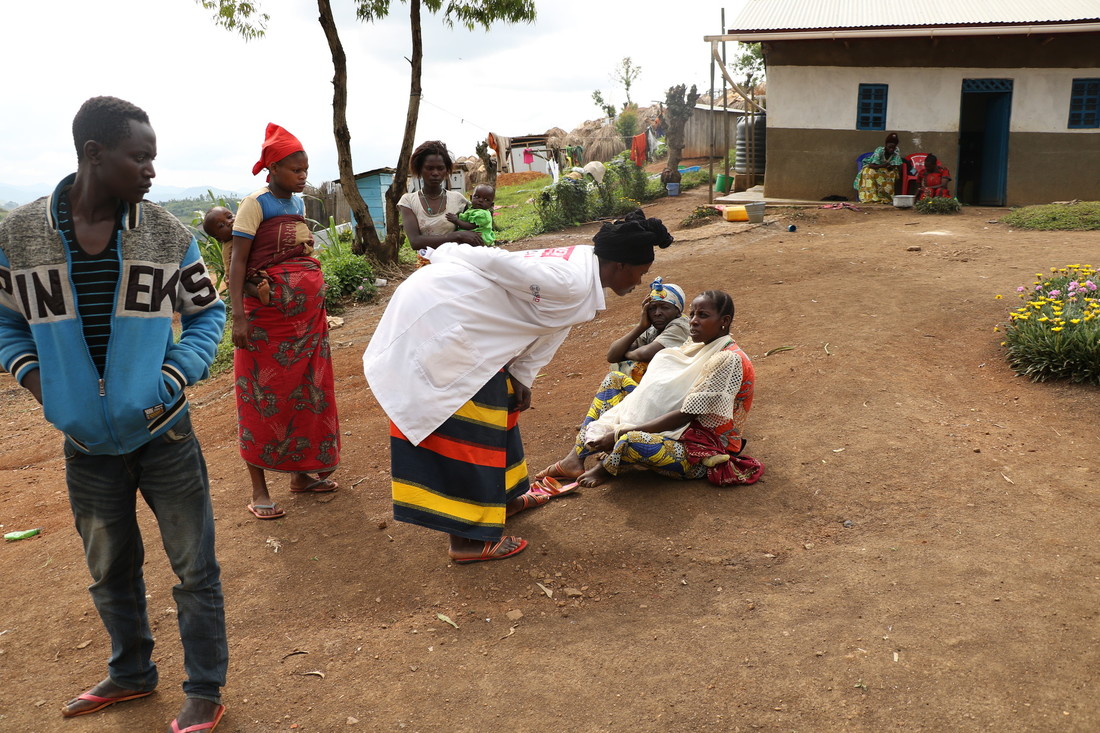 Georgine speaks with patients in the grounds of Lopa health center.
Georgine speaks with patients in the grounds of Lopa health center.
Both women feel uncertain of what lies ahead of them and their families, but they find comfort from people helping them.
Josephine thanks Georgine for showing compassion despite the fact that she is also struggling, and Georgine expresses gratitude for her job at the health center – something that wouldn’t be possible if the host community were not willing to give her the opportunity, and if Medair were not supporting salary payments.
“We are grateful that people in Lopa welcomed us. They have been considerate hosts. We are favored to have free access to the health facility,” Georgine says.
Both Georgine and Josephine admit that they sometimes feel despair, but they also hold on to the belief that they will be able to overcome the challenges, and that the children living with them in displacement will grow up to be healthy and to live in peace.
Thanks to funding from the US Office for Foreign Disaster Assistance, Medair is able to support 16 health centres in Ituri and Nord Kivu Provinces to provide primary health services to vulnerable people. The project contributes to reducing morbidity and mortality among returnees, IDPs, and host populations.
Medair’s aid to health centers includes financial support, provision of medicines and equipment, training, supportive supervision, and minor rehabilitation to ensure adequate sanitation and hygiene, and proper waste management.


